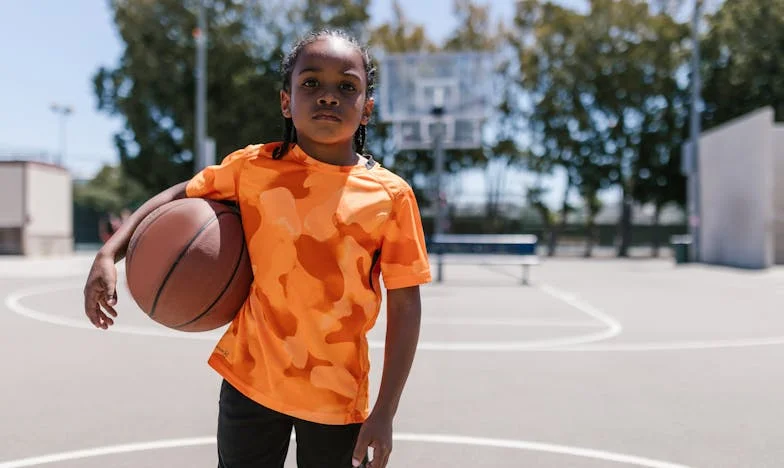Lost in Her Own Home: A Mother’s Heartbreak
The phone buzzed on the kitchen counter, the harsh vibration echoing through the empty house like a threat. I wiped my hands on a dish towel and stared at the caller ID: Emily. My daughter’s name still gave me hope, like a flash of sunlight through storm clouds. But when I answered, her voice was thin, distant—barely my daughter at all.
“Hey, Mom. I can’t come this weekend,” she said, words clipped, rehearsed. “Tyler’s got that business thing, and I promised I’d help.”
My heart thudded, cold and heavy. “Emily, it’s your father’s birthday. He’s been looking forward to seeing you. We all have.”
A pause, static crackling between us. “I know. I just… Tyler really needs me right now. Maybe next month?”
I wanted to scream. Instead, I pressed my palm against the countertop, trying to steady myself. “Emily, we haven’t seen you in six months. You used to come every Sunday.”
“I know, Mom. Things are just… different now.”
That was always her answer: things were different now. Ever since she’d married Tyler two years ago, our once-close bond had unraveled, thread by painful thread. I thought of the little girl who used to dance barefoot in the backyard, mud smeared on her cheeks, laughter ringing out like bells. Now, every time she called, she sounded further away—lost in a life I couldn’t reach.
After she hung up, I stood by the window, watching the sun slip behind the neighbors’ rooftops. My husband, Tom, came in, lines of worry etched deep into his face. “She’s not coming, is she?”
I shook my head, unable to speak. He just sighed, shoulders slumping, and went to the living room to watch the news alone. Our anniversary cake, Emily’s favorite, sat untouched on the counter. The house felt colder than it had all winter.
It wasn’t always like this. When Emily told us she was marrying Tyler, we were cautious but supportive. He was charming, successful, and he made her eyes light up in a way I hadn’t seen before. But after the wedding, Tyler changed. He started making offhand remarks about our family—how we were too clingy, how we didn’t understand their ambitions. He convinced Emily to move two hours away, then discouraged her from visiting. Every holiday, there was a new excuse: work, illness, travel. The distance between us grew, not in miles but in silence.
On Christmas, I called to ask if they’d come for dinner. Tyler answered. “We’re doing our own thing this year. Emily’s busy, but she says hi.”
I heard her voice in the background—soft, uncertain. I wanted to reach through the phone and pull her back home.
Tom tried to stay optimistic. “She’s just finding her way. Let’s give her time,” he’d say. But his eyes betrayed him—red-rimmed after too many nights staring at old photo albums.
Then came the night of the family intervention. My sister, Susan, and her husband came over. “You can’t just let her slip away,” Susan insisted, her voice rising. “You have to do something. Go there. Bring her home.”
But how do you rescue someone who doesn’t know they’re lost?
I tried to call one last time before Tom’s birthday. I rehearsed what I’d say, careful to keep my voice steady.
“Emily, sweetheart, we miss you. Your father’s not well. Please come home.”
She was quiet for a moment. “Mom, I wish you’d stop making me feel guilty. Tyler thinks you don’t respect our choices.”
I swallowed my anger. “Emily, it’s not about Tyler. It’s about you. Are you happy?”
She hesitated, then whispered, “Of course I am. I have to go, Mom.”
The line went dead. I stared at my reflection in the microwave door—gray hair, tired eyes, mouth pinched in worry. Was I the problem? Had I pushed her away?
The afternoon of Tom’s birthday, he sat by the window watching for her car, hope flickering in his eyes each time headlights turned onto our street. But the hours passed. Guests arrived, cake was served, and still no Emily. When it was time to blow out the candles, Tom closed his eyes and made a wish. I knew what it was.
After everyone left, I found Tom in the den, staring at the family portrait on the mantel. Emily, seventeen, beaming in her graduation cap. “Do you think she’ll ever come back, Linda?” he asked, voice cracking.
I sat beside him, tears prickling behind my eyes. “I don’t know. I just don’t know.”
That night, I wrote Emily a letter. I told her about the empty seat at the table, the way her father’s eyes searched the crowd, the silence that pressed in after everyone went home. I told her I loved her, no matter what.
Weeks passed before I got a reply. It was short, almost formal. “I’m sorry for missing Dad’s birthday. I love you both, but I need space. Please understand.”
Space. There was all the space in the world between us now.
Sometimes, late at night, I replay our last real conversation, before Tyler, before distance, before everything changed. Her laughter, her warmth. I wonder if she remembers, or if she’s too far gone. I wonder if she’ll ever find her way back, or if she’s lost for good.
How do you hold onto someone who’s already let go? And what do you do when love isn’t enough to bring them home?
